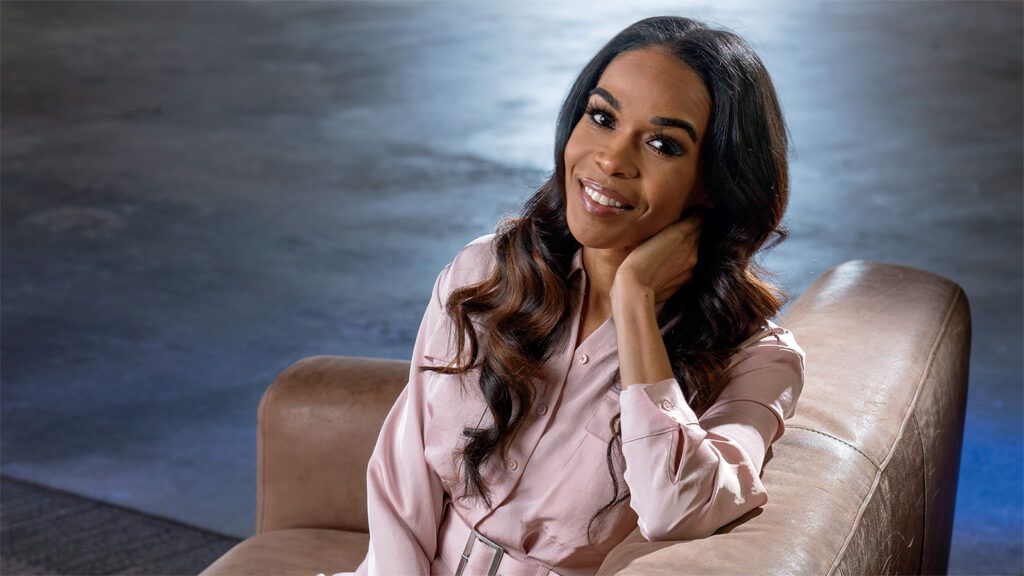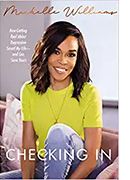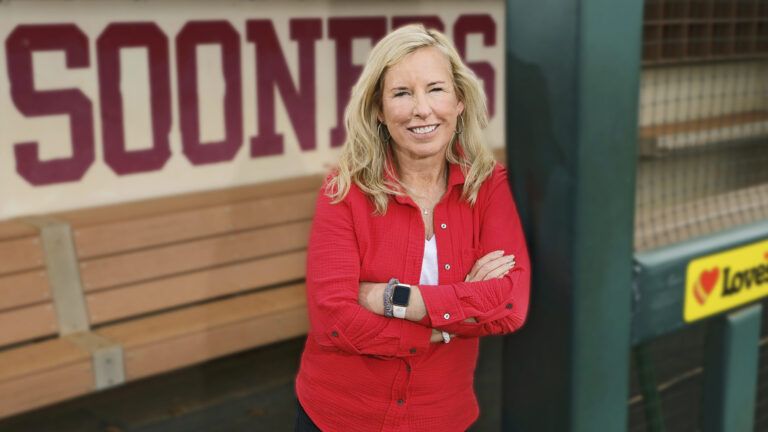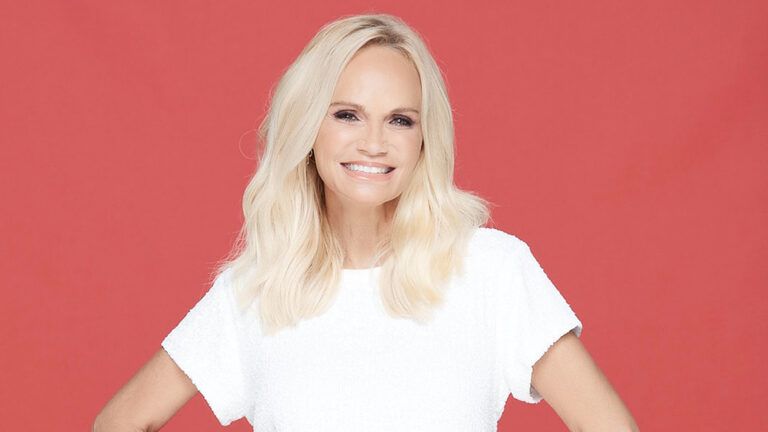“I need help.” The three most powerful words a person can say. I should know. It took me a long time, but I finally said them. It most likely saved my life.
I guess it started when I was about 13. Today I understand I was having symptoms. Back then they were just feelings that left me unsettled: a passing sense that nothing mattered or would ever really matter, anxiety that made me climb out of bed in the middle of the night and pace the floor for no reason, a kind of spiritual numbness, feelings of not being loved even though I was.
I soon learned that these were signs of depression. In a way, I thought I simply had to live with them. Even years later, when I was performing in Destiny’s Child, those feelings would rear up. I’d be like, “Oh, depression. You still here? I gotta go do a show. We’ll talk later.” I tried to ignore what was happening. Or maybe I was just trying to accept it.
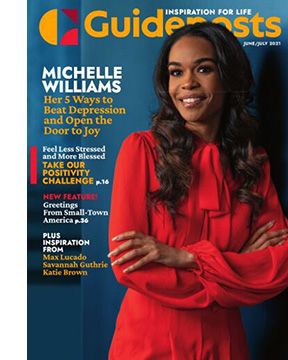
issue of Guideposts magazine
Three years ago, I plunged into such a dark hole that I couldn’t get out. I could barely get off my sofa. Things came to a head when I didn’t show up for a promised event with my pastor and his wife. Didn’t call or text. Just didn’t show up.
“This isn’t like you, Michelle,” they said. It was then that I finally allowed myself to say those three powerful words. I need help. I called the therapist I’d been seeing—that much I had been doing—and she recommended a facility to go to. Arrangements got made. I drove myself there. Didn’t pack a bag, a toothbrush, a change of clothes. My hair was sticking up like a bad Halloween wig. I just drove.
More than 16 million American adults a year develop a major depressive disorder the way I had. Generalized anxiety disorder affects nearly 7 million. Less than half seek or get treatment. Less than half. Christians can be especially prone to this, as if we don’t want to let down the Great Physician or think that depression is a failure of faith. I ask you, though, would we do the same if we had cancer or some other disease?
Depression is a disease like any other. It doesn’t care who you are or what your external life looks like. It gets inside you. I had a good career. My music grew out of my Christian faith. Things seemed to be going well for me, at least from the outside. But inside I was a mess. The act of checking into that treatment center was the first step of taking back the power. Here’s what I learned.
Accept the help. It’s not enough to ask for help. You have to be willing to accept it. “What do you have to be depressed about?” I’d scold myself. “You’re doing well. People would love to have your career.” The externals don’t matter. Only when my pastor reached out did I give in.
Depression tells you that you don’t deserve to feel better. That your feelings are the truth. It felt as if I had been dogpaddling in the middle of the ocean. At the facility, I was finally on shore, able to catch my breath.
This nice nurse found out that I hadn’t brought any clothes with me and went to Target, loading me up. I was so grateful, I couldn’t believe it. Depression smothers gratitude. But that spark of gratitude was the beginning of acceptance and healing.
Own your truth. Don’t just talk about—or around—what you’re going through; you have to own it. I had been transparent about my battle with depression, occasionally even opening up about it to interviewers. But there’s a big difference between transparency and acceptance. An alcoholic who admits to being one but still drinks isn’t really owning the disease.
The same is true with depression. By owning your depression, you allow yourself to be helped. By the people around you and by God. Especially by God—because you can’t fool him.
My first name is Tenitra—pronounced “Teh-nee-trah.” Michelle is my middle name. When I launched my career, they said, “Who do you think little girls want to be like? A Tenitra or a Michelle?” I went along with it—becoming Michelle in Destiny’s Child—while losing a part of myself. I just buried it and didn’t say anything. But it hurt.
Back in seventh or eighth grade, I’d discovered the power of my voice, feeling the presence of God smack-dab in the middle of a song we were singing at Macedonia Baptist Church in Rockford, Illinois, where I grew up. But I never saw myself as an entertainer. I don’t regret the career I’ve had, but for too long I left half of myself hidden.
Not long ago, I had the thrill of competing in The Masked Singer. Performing with a mask on, I was wild and free. I had labeled myself as used, tired and done. Michelle was over. Not Tenitra. I rediscovered the gift that God had given me. Not what others said. What I knew. The truth. It was freeing.
Feel your feelings, but don’t let them fool you. I was so ashamed of how I felt, and shame feeds depression the way oxygen feeds a fire. Some people are predisposed to depression. No need to judge it. Treat it like a disease.
I have a magnet that says, “Sometimes when I open my mouth, my mom comes out.” My mother is a bright woman. She could write you an eloquent 10-page letter in 10 minutes. But, baby, you do not want to be on the receiving end of Mrs. Williams’s anger.
Anger could pop out of me too, especially when I was hiding deeper emotions, such as my fears of rejection or of somehow not measuring up. Feelings are not facts. They can feel very real without being true. Like not feeling loved when you are loved. Or not feeling good enough when you are. Or going by some false label. Feel your feelings, but then confront them. Push back.
Don’t compare. It’s not just people in the music business who end up comparing themselves to others, checking record sales or social media followers. Open Instagram or Facebook and you’ll see people exactly as they want to be seen. But does the picture tell the whole story?
Ask yourself who you are measuring yourself to. My faith tells me to compare myself to the life Jesus led and try to live up to that. And know that he loves me despite my stumbles, even more so because of them.
The comparisons we make through social media can be especially harmful. It’s no wonder that so many kids, attached to their phones 24/7, are finding themselves struggling with anxiety and depression.
Cast your cares. My uncle used to take us fishing all the time. I didn’t like it much. It was often freezing, and my uncle used little hot dogs as bait that really smelled. You had to cast your line into the water, which was hard for me. I’ve always been lanky with long arms, and casting a fishing line is not something a lanky preteen girl is going to nail the first time around. Or the second. Or the third. In other words, it takes practice. I used to get frustrated.
But here’s something. The disciple and fisherman Peter uses the word cast when he talks about our cares and anxieties. “Cast all your anxiety on him because he cares for you,” he says in 1 Peter 5:7 (NIV). Other translations say, “Cast all your cares” or “Cast all your worries.”
The point is, we need to do it with God’s help. Doing it takes practice. And it can be frustrating because we are human and don’t always get it right. I sure don’t. But that’s okay. I’ve learned the most powerful antidote to depression is sharing it with the Lord, however imperfectly. Nothing will get you more depressed than trying to be perfect.
My whole life, I had a little list of what I thought a perfect daughter was, a perfect employee, a perfect Christian. If I crossed off everything, then I was okay. If I didn’t check all those boxes, then I was a bad person. Instead of casting my cares on God, I collected them. I ended up serving those lists, not God.
If we define a bag by its creator—like the Dooney & Bourke my aunt gave me back in the day—why don’t we define ourselves by the same standard? By who created us?
Today instead of checking in with my own lists, I check in with God’s. Instead of asking myself, “Who is mad at me? What have I done career-wise? Why am I not married?” I start by looking at God’s list and what he has done for me. I’ll even write it down. A blessings list. A door to joy. I mean, what’s more joyous than God’s love for us? Is there anything to be more grateful for?
This past year has been tough for us all. When I first heard about Covid-19, I was in Los Angeles for award-show season. The Emmys, the Grammys. I was in a much better place, gearing up for a huge tour that would launch at the end of May. All at once we were being asked to stay home. No tour. Nothing.
I’m used to living alone, but after a while I was like, Oh, no. I’m going to get depressed. What if I spiral down? Who will help me? Depression, after all, thrives in isolation. It loves getting you alone.
Back home in Atlanta, I’d go out for long walks, breathing in the fresh air. I’d listen to myself, checking in. “Are you avoiding any dark feelings? Own them. Are you really okay? Don’t fake it. What cares do you need to cast on the Lord today? Do it!”
Especially painful was losing my father this past December, a terrible loss at a time like this. Again and again, I calm myself by remembering, “God is with you. He is bigger than depression, and he loves you. Rejoice in that.”
You may not struggle with the level of depression I have, but almost everyone gets depressed from time to time. It’s part of being human. Don’t be afraid to reach out, to ask for help, even if it’s just from a friend. I need help are the most powerful words. They are the key to opening the door to joy.
Michelle Williams is the author of Checking In: How Getting Real About Depression Saved My Life—and Can Save Yours.
For more inspiring stories, subscribe to Guideposts magazine.
